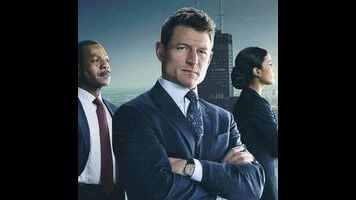The only surprising thing about Chicago Justice, the fourth entry in Dick Wolf’s “Chicago” franchise, is that it took the mega-producer so long to return to the bench. Wolf is probably best known for spawning the Law & Order empire, which once boasted three concurrent programs on NBC. The flagship series has been out of commission for over six years, and he might have turned his attention to the Second City’s emergency personnel, but the district attorney’s office—now state’s attorney—was never far from Wolf’s mind. Chicago P.D. in particular has allowed the producer to scratch that itch, but there have been rumblings of an L&O “original recipe” reboot for some time now.
So that raises the question of whether Wolf is testing those waters with Chicago Justice, a legal drama whose backdoor pilot will air as part of a huge crossover episode on March 1. If that were the case, though, he probably would have just called it the far more obvious (not to mention less ambiguous) Chicago Law. And it’s not like his plans for a revival, which he recently teased, have been stymied by the network. But there’s no mistaking the connection between his new series and his career-making franchise, which share some of the same DNA. We’ve got our two equally important groups: the attorneys who prosecute the crimes and the investigators who help them build their cases. These factions aren’t exactly separate, though: Assistant State’s Attorneys Peter Stone (Philip Winchester) and Anna Valdez (Monica Barbaro) work more closely with their investigators, Antonio Dawson (Jon Seda) and Laura Nagel (Joelle Carter), than Jack McCoy or Ben Stone ever did with Briscoe or Van Buren.
The only episode screened for critics still has plenty of pissing matches, whether it’s Dawson—who made his way over from Chicago P.D.—insisting he’s right about a former co-worker’s innocence, or State’s Attorney Mark Jeffries (Carl Weathers) pushing for a grand jury because he’s worried about appearances. What is new here is that, unlike Schiff and McCoy, Jeffries doesn’t deny he’s a politician. He just sees it as part of the job, like meeting with the reverend who pressures him to bring a cop to justice for allegedly killing an unarmed young man in his custody.
That’s actually old hat, but Chicago Justice’s contemporary setting casts a new light on this fraught relationship with community leaders. Real-life grassroots action for police reform has risen in the years since McCoy left his fictional office, and it’s one of the many issues that will reportedly be addressed. It’s a tall order for the series, let alone a 45-minute episode, and “Uncertainty Principle” chooses to live in the gray than side with the bleeding hearts or bleed blue. Instead, the episode focuses on how errors can be made on both sides of the law, a point it drives home through former ADA Paul Robinette (Richard Brooks), who’s now a defense lawyer.
Robinette isn’t the only Law & Order character who makes an appearance this episode; his former boss, Ben Stone, is Peter’s dad, who’s had some kind of falling out with his son. Although he is only ever mentioned, the action grinds to a halt whenever he does come up, precisely because of his name. On the show, it carries enough weight to make characters pause; for the viewer, it recalls the early days of Wolf’s famous procedural, which is to Justice’s detriment. Peter’s daddy issues don’t make him much more interesting, and his courtroom address at episode’s end comes off as a disclaimer for the show instead of a wise observation about the importance of nuance.
Although one episode doesn’t offer cast members much of a chance to gel, they should at least make an impression. Only Weathers’ gravitas is memorable. Winchester has little affect and sounds the same when he’s negotiating with opposing counsel as he does apologizing to a defendant. Barbaro continues the L&O tradition of filling the second chair with a beautiful, idealistic woman, but she otherwise looks lost. Seda and Carter each possess an appealing caginess, but that also feels like a holdover from their Chicago P.D. and Justified days. The episode flails under the weight of multiple legacies: In addition to the through-lines of the other Chicago shows, there’s its New York connection. In order to get the wheels of Justice moving, Wolf and his showrunner, Michael S. Chernuchin (another Law & Order vet), will have to choose between the two.

 Keep scrolling for more great stories.
Keep scrolling for more great stories.
